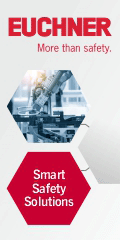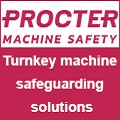
Posted to News on 31st Oct 2024, 14:00
Choosing the right torque limiter can make all the difference
Two primary types of torque limiters widely used in the industry are friction-fit and positive-fit (or mechanical) torque limiters. Understanding the differences in their working principles, advantages and limitations can help businesses select the best solution for their specific needs. The experts at Lenze Selection offer their guidance.

In industries where machinery operates under high loads and speeds, torque limiters play a crucial role in protecting equipment from damage due to overloads.
Torque limiters serve as a mechanical fuse, disengaging the drive mechanism when a preset torque level is exceeded, safeguarding equipment from damage and avoiding costly downtime.
Friction fit torque limiters
Friction-fit torque limiters, also known as slip clutches, rely on frictional forces between discs or plates to transmit torque. They are set to a predefined torque level, beyond which they begin to slip. This controlled slipping action prevents damage by allowing relative movement between the driving and driven components. When the overload condition passes, they automatically re-engage, providing a simple and cost-effective overload protection solution. Advantages include:
Cost-effective and easy to set up: Friction-fit limiters are relatively simple to install and adjust.
Automatic re-engagement: They reset automatically after an overload, avoiding the need for manual intervention.
Smooth overload handling: These limiters provide a gradual slipping action, reducing shock loads.
But there are some disadvantages, too:
Wear over time: Friction surfaces are prone to wear, requiring maintenance and potential replacement.
Limited precision and accuracy: Friction-fit torque limiters may be less accurate in maintaining torque levels, as settings can change due to wear or environmental factors.
Positive fit torque limiters
Positive-fit, or mechanical torque limiters, rely on mechanical interlocking elements, such as balls or rollers, seated within precisely defined slots. When an overload occurs, these elements are forced out of their positions, disengaging the drive mechanism. This action prevents the transmission of excessive torque but requires a manual or automatic reset to re-engage. Advantages include:
High precision: Positive-fit torque limiters offer precise torque settings, ideal for applications where accuracy is critical.
Durable with less wear: These limiters experience less wear over time compared to friction-fit types, as there's no continuous friction involved.
Reliable in extreme conditions: They perform consistently in harsh environments with significant load fluctuations.
And the disadvantages?
Higher cost: Due to their precision and robustness, positive-fit limiters tend to be more expensive.
Manual reset requirement: After an overload, most positive-fit torque limiters require manual resetting, potentially increasing downtime.
Selecting the right torque limiter
Choosing between friction-fit and positive-fit torque limiters depends on factors such as application environment, budget, and precision requirements. Friction-fit models are better suited for light to moderate applications with occasional overloads, whereas positive-fit limiters are ideal for high-precision, heavy-duty environments.
By selecting the appropriate torque limiter, businesses can enhance equipment reliability, minimise downtime, and reduce maintenance costs.
Want the latest machine building news straight to your inbox? Become a MachineBuilding member for free today >>
Lenze Selection (a Division of Lenze Ltd)
6 Abbey Court Road
Priory Business Park
MK44 3WH
UNITED KINGDOM
+44 (0)1234 753201















